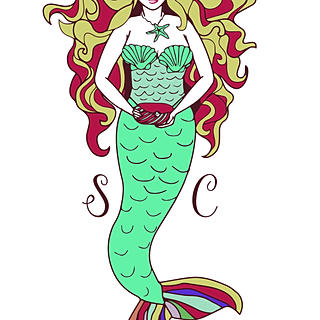The Importance of “framing” Part 4 – Getting it Wrong – Titanic
- Bill Holmes
- Feb 13, 2020
- 3 min read

“Not the waves, not the storms, but often we ourselves sink our ships!” Mehmet Murat ildan
“But all the love in the world won't save a sinking ship. You have to either bail or jump overboard.” Sarah Dessen, What Happened to Goodbye
I am sure we all know the tragic story of the Titanic. The RMS Titanic was a British passenger liner that sank in the North Atlantic Ocean in the early morning hours of April 15, 1912, after striking an iceberg during her maiden voyage from Southampton to New York City. RMS Titanic was the largest ship afloat at the time she entered service, and with more than 1,500 fatalities, the sinking is one of modern history's deadliest peacetime commercial marine disasters.
What caused the tragedy? There have been a variety of investigations, and after reading the available information the answer is obvious.
A bad frame.
Hear me out!
When the New York office of the White Star Line was informed that Titanic was in trouble, White Star Line Vice President P.A.S. Franklin announced ” We place absolute confidence in the Titanic. We believe the boat is unsinkable.” By the time Franklin spoke those words Titanic was at the bottom of the ocean. The culture was that the Titanic was so big that it really was “unsinkable”! So, what decisions did that frame create?
The “unsinkable” frame influenced training and sea trials. Titanic underwent only about six or seven hours of testing. During this time, the ship's turning radius and equipment were observed, but Titanic was never even driven at its maximum speed. What's more, emergency drills required some crew members to practice lowering lifeboats, but they lowered only two of the sixteen, rendering an inaccurate estimation of time for evacuation procedures. One reason for these abbreviated tests and drills may have been that the full crew wasn't even onboard yet -- many didn't board until a few hours before Titanic took off from Southampton, and most of the crew weren't assigned official jobs or posts until they neared Cherbourg the following day [source: Titanic Inquiry Project]. But why worry about such things when the boat was unsinkable?
The “unsinkable” frame had an impact on safety. Unknown to many passengers onboard, the Titanic was actually on fire in one of its coal bunkers. Fire wasn't enough to detain the giant ship; Titanic sailed on, and the fire was eventually extinguished. Another safety issue was that two lookouts in the Titanic’s crow’s nest did not have binoculars, which greatly decreased the ability to see icebergs at a distance.
The final impact of the “unsinkable” frame was arrogance. The captain, crew and passengers alike put their faith in the sturdy giantess. The ship's brute strength and size could forestall any disaster, and that might explain why Capt. Smith discounted the ice warnings he received on the night of April 14, 1912, and instead forged ahead -- full throttle -- at the record-breaking speed of 22.5 knots into a previously identified 78-mile iceberg zone. Yet even as the dangers magnified, with the fading light Capt. Smith chose to dine with wealthy passengers and go to his bed early, leaving first officer William Murdoch with the responsibility of dodging the ice.
This was an avoidable tragedy and was the result of a variety of poor choices made seeing the world through the wrong frame.
What is your frame? Who are you listening to?
Coda
I once worked for someone who was at war with their boss. That put me in a difficult position as peasants often get trampled when titans battle! The battle was over some technical issue long lost to history, but I do recall having a cup of coffee with my boss after a particularly difficult skirmish in the ongoing war. I asked them why they cared so much about this particular issue and continued to ask questions until I got to the root cause. They felt slighted at not being asked to participate in a new group that was working on a project they were passionate about! Once I understand what was actually going on, I was able to reshape their frame on the issue and the war ended. Sometimes being a good employee is helping your boss change their frame and avoid disaster. But the boss has to be willing to listen!









Comments